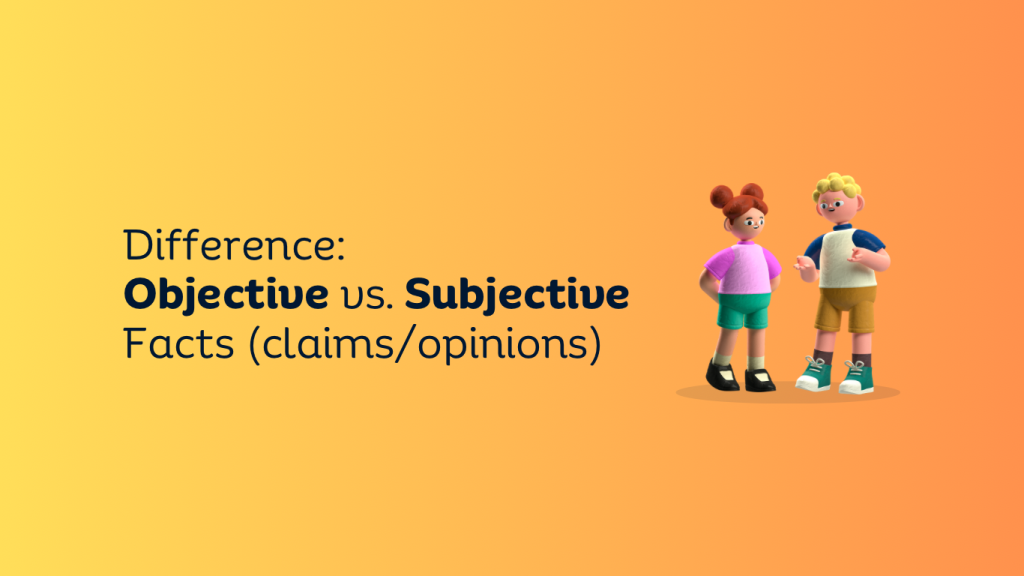
In the realm of human understanding, facts serve as the foundation upon which knowledge and reasoning are built. However, not all facts are created equal. Some are objectively verifiable, while others are subject to individual interpretations and perspectives. This article delves into the crucial difference between objective and subjective facts, providing clear examples to illustrate their contrasting nature.
Objective Facts (claims)
Objective facts or objective claims refer to information that exists independently of personal beliefs, opinions, or interpretations. These facts are verifiable and observable, usually backed by empirical evidence that remains consistent across different observers. In essence, objective facts are the same for everyone, regardless of their background or viewpoint. Here are some examples to elucidate the concept:
Earth’s Circumference: The measurement of Earth’s circumference is an objective fact because it can be calculated through precise scientific methods, such as triangulation and satellite technology. Regardless of who performs the calculation, the result will be approximately 40,075 kilometers.
Water Boiling Point: The boiling point of water at sea level is objectively determined to be 100 degrees Celsius (212 degrees Fahrenheit). This fact remains unchanged and applies universally. Historical Dates: Events in history, like the signing of the Declaration of Independence on July 4, 1776, or the landing of Apollo 11 on the moon on July 20, 1969, are objective facts with well-documented evidence.
Subjective Facts (claims/opinions)
Subjective facts or subjective claims/opinions, on the other hand, pertain to information influenced by personal feelings, interpretations, or opinions. They are shaped by an individual’s emotions, experiences, and cultural background, leading to varying perspectives among different people. As a result, subjective facts can be open to debate and are not universally accepted. Examples of subjective facts include:
Taste Preferences: A person’s preference for a particular food or cuisine is subjective since it is based on individual taste buds and cultural upbringing. What one person finds delicious, another may dislike.
Art Appreciation: The beauty and significance one derives from a work of art are subjective. While a painting may evoke strong emotions in some viewers, others might not connect with it in the same way.
Movie Reviews: Film critics often provide subjective evaluations of movies, as opinions about the plot, acting, and cinematography can vary greatly from one reviewer to another.
Difference Between Objective and Subjective Facts
To differentiate between objective and subjective facts, it is essential to consider the following aspects:
Verifiability: Objective facts can be proven through empirical evidence and scientific methods, while subjective facts rely on individual experiences that are difficult to verify.
Universality: Objective facts apply to everyone, whereas subjective facts are limited to personal viewpoints and interpretations.
Consistency: Objective facts remain consistent across different observers and contexts, while subjective facts may vary significantly.
Let’s Reiterate
Objective and subjective facts or claims represent two distinct categories of information that shape our understanding of the world. Objective facts are universally verifiable, providing a shared foundation for knowledge, whereas subjective facts are shaped by individual perspectives and experiences.
Understanding the difference between these two types of facts is crucial for critical thinking, effective communication, and maintaining intellectual integrity in various fields of study. By recognizing the nuances of objective and subjective facts, individuals can navigate information with greater clarity and discernment.
References
Butte College: https://www.butte.edu/departments/cas/tipsheets/thinking/claims.html
Justice Institute of BC, Centre for Leadership: https://www.jibc.ca/sites/default/files/community_social_justice/pdf/cl/Objective_vs._Subjective.pdf